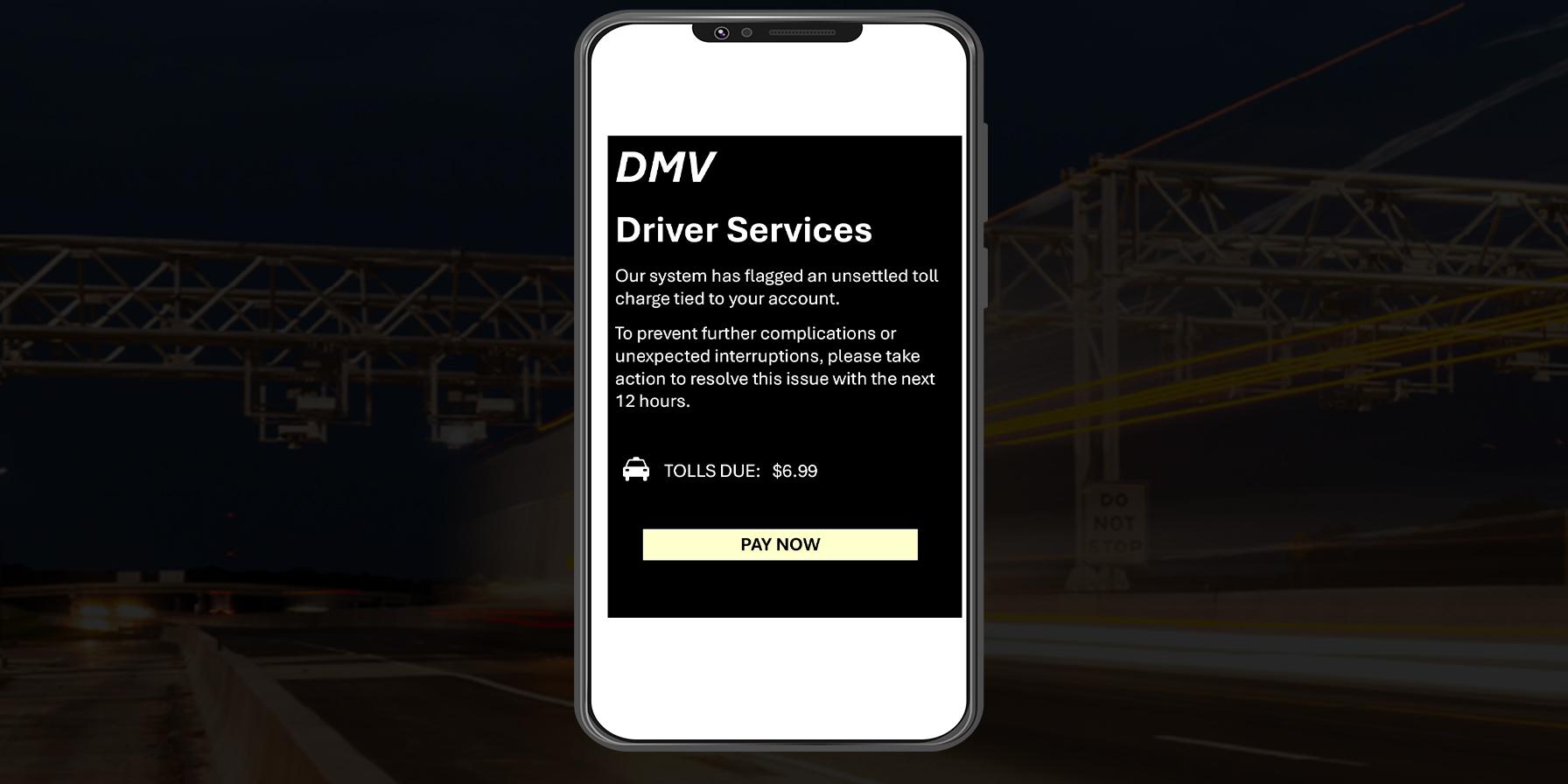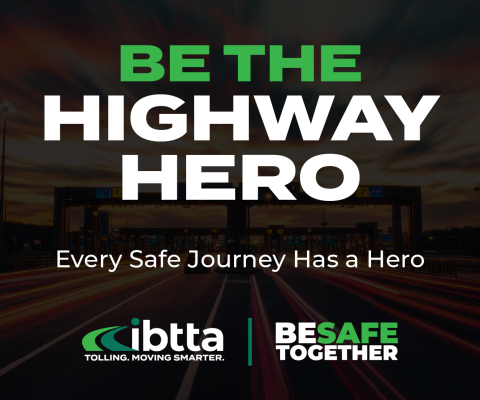- Home
- IBTTA Insights
- Smishing Scam Spoofs Now Targeting New Transportation Agencies
Voices
Smishing Scam Spoofs Now Targeting New Transportation Agencies


The tolling text scams that arose more than a year ago have continued to be a persistent problem, with waves of fraudulent texts prevalent throughout the nation. The toll industry is a lucrative target for SMS scammers who seek to exploit the high volume of financial transactions and customer interactions that our businesses conduct every day.
Recently, the scams have taken on a new look. Fraudsters are now impersonating state departments of motor vehicles (DMVs) and departments of transportation (DOTs), sending fake messages that appear to come from these official agencies. The toll SMS phishing attacks—often referred to as “smishing”—target randomly selected mobile phone numbers, regardless of whether the recipients have toll accounts or have recently used toll roads.
The new scam messages use the names and logos of trusted regulatory bodies to trick recipients into clicking malicious links. These links often lead to phishing sites designed to collect personal information or install malware. The messages usually convey a sense of urgency, falsely claiming unpaid tolls and threatening vehicle/license suspension or large fines.
The spoofed websites associated with these scams are becoming increasingly sophisticated and difficult to distinguish from legitimate sites. These smishing campaigns often rely on bulk SMS services, spoofing tools, and SIM farms to distribute fake messages that appear to originate from legitimate sources. Once a user interacts with a fraudulent link, scammers can steal personal credentials, hijack accounts, install spyware, or monetize stolen data.
Toll operators are encouraged to collaborate with their local DMVs and DOTs to increase public awareness and help customers protect themselves with fraudulent messages.
According to the FBI’s Internet Crime Complaint Center’s 2024 report, toll scams are one of the top trending complaint types, although financial losses remain under $130,000. In comparison, other scams—such as those involving fake family emergencies, gold couriers, and international call centers—have caused millions to billions of dollars in annual losses.
The toll industry response has needed to be nimble to maintain effective vigilance and ongoing public warnings and awareness. Toll operators’ vigilance in protecting systems, data, and customer information has been effective, with no known toll data or toll system security breaches. Active cooperation with the FBI, and state criminal investigative units has been extended to the Federal Trade Commission’s (FTC) Consumer Sentinal Network. The FTC maintains a comprehensive investigative and information network to aid organizations in enforcement. They are seeking direct relationships with toll operators.
Recently, toll operators are also borrowing from the best practice in other industries by working directly with wireless service providers to stop these scams at their source.
For now, clear communications and effective warnings of scams are essential to educating mobile phone users on how to protect themselves. Alerts on agency and account management websites, social media posts, proactive emails to customers are helpful but outreach to other stakeholders, like DMVs and DOTs is valuable.
In the final analysis, broadcast and print media coverage is extremely valuable in spreading wider public awareness.
For more information, have a look at IBTTA’s webinar, Smashing Smishing in Tolling.

Mark Muriello is IBTTA’s Vice President of Policy & Government Affairs. Mark has a distinguished record of accomplishment in highway operations, tolling, finance, transportation planning, and policy. Mark advocates for tolling and road pricing interests at the federal, state and local levels of government, and works with a a comprehensive array of industry organizations and stakeholders. Mark actively leads IBTTA’s agenda in government affairs, policy, lost revenue recovery, sustainability and reliance, climate action, and alternative transportation revenue sources.
Mark has more than four decades of experience in transportation and public finance, covering tolling and highway operations, bridges, tunnels, rail, bus, and marine terminal facilities, as well as in the electric utility industry. As the former Deputy Director of Tunnels, Bridges and Terminals for The Port Authority of New York and New Jersey, Mark oversaw the operations, maintenance and planning for the agency’s six tunnels and bridges and two interstate bus terminals that connect the New Jersey and New York City. Mr. Muriello served on the International Bridge, Tunnel and Turnpike Association’s Board of Directors while at the Port Authority and in a leadership capacity in a number of industry and national transportation organizations, including the E-ZPass Group, the Transportation Research Board, the OmniAir Consortium, and the Eastern Transportation Coalition.
Joining IBTTA connects you to a global community of transportation professionals, offering unmatched opportunities for networking, knowledge-sharing, and collaborative innovation in the tolling and transportation sector.
Follow IBTTA on social media for real-time updates on transportation trends and collaborative opportunities.





